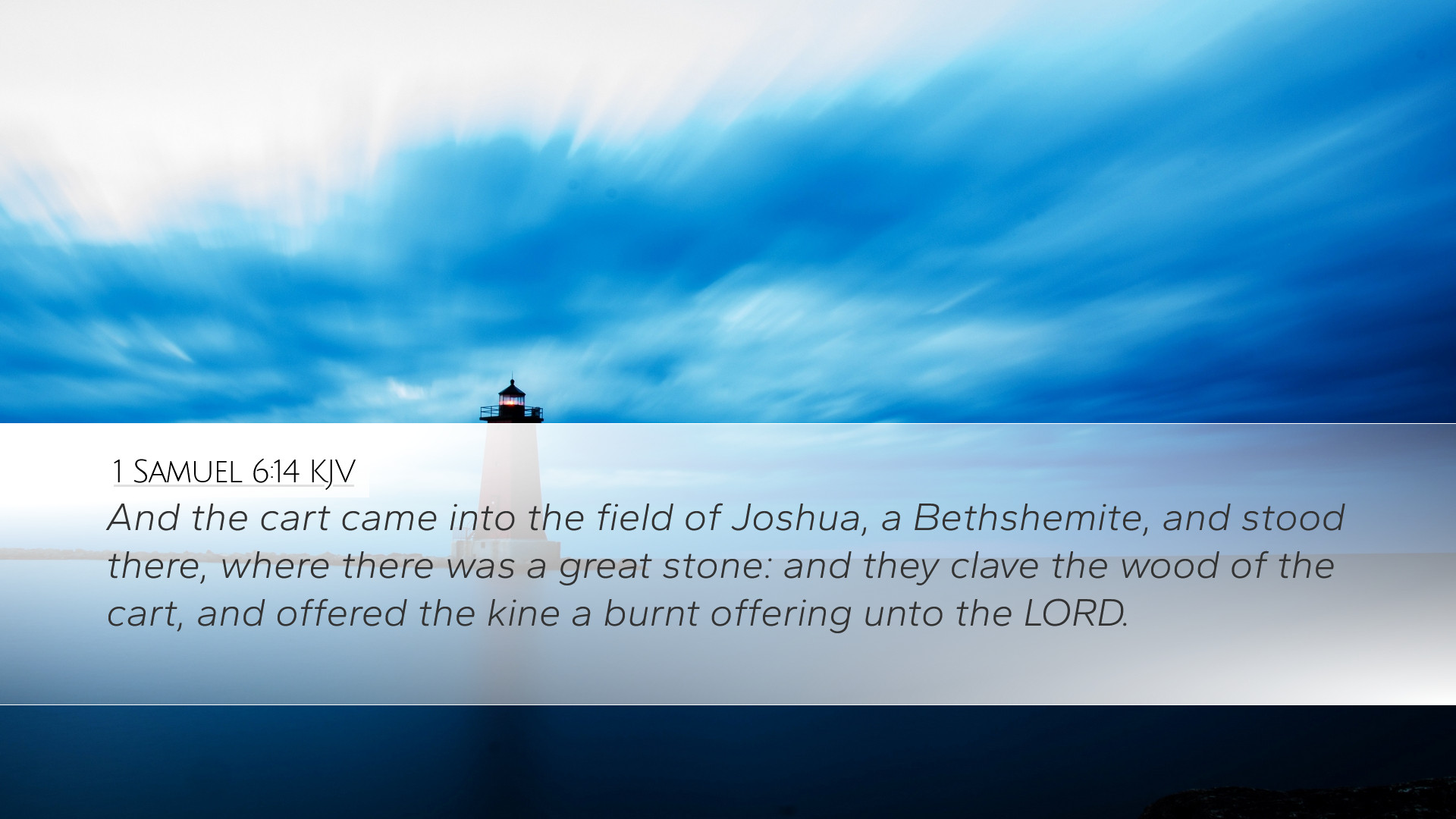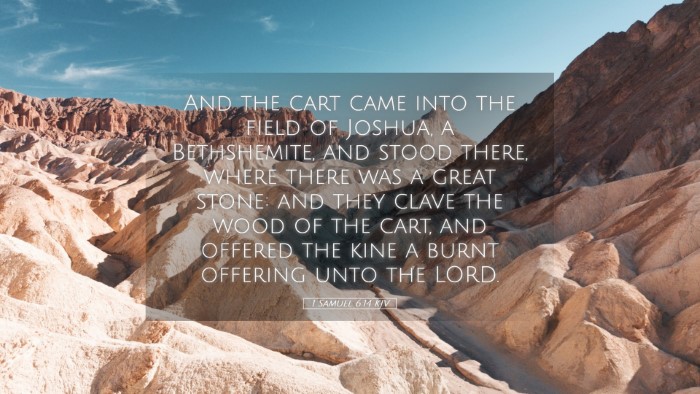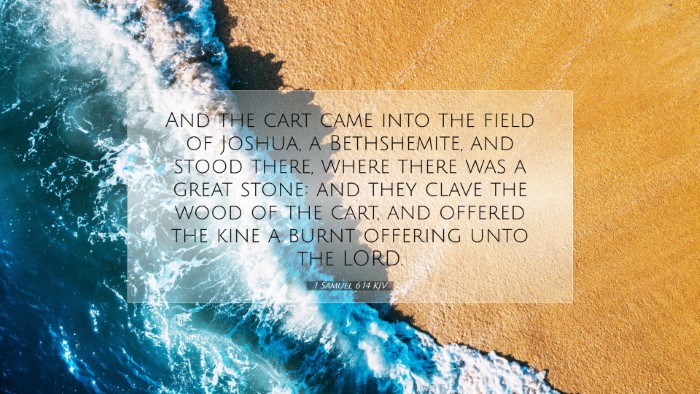Commentary on 1 Samuel 6:14
Verse Context: 1 Samuel 6:14 states: "And the cart came into the field of Joshua of Bethshemesh, and stood there: a great stone was there." This verse appears at a crucial transition point in the narrative of the Ark of the Covenant, reflecting on its journey back to Israel after being in Philistine captivity.
Overview of the Passage
This passage marks a significant moment for the Israelites as it highlights the return of the Ark and the reverence that should accompany sacred objects. Various commentaries shed light on the significance of this event, illustrating the profound implications for both Israelite worship and their understanding of God's presence.
Insights from Matthew Henry
Matthew Henry emphasizes the providential return of the Ark and the manner in which it was sent back by the Philistines. He notes that the Ark's coming into the field of Joshua was not merely coincidental; it was ordained by God. Henry points out that the choice of Joshua's field implies a location favored by the Lord for this divine event.
Spiritual Significance
Henry reflects on the state of Israel at this time, showing that the return of the Ark symbolizes a restoration of God's presence among His people. The great stone referenced acts as a marker of this monumental event, reminding the Israelites of God's power and mercy in bringing back the Ark, which had represented His covenant with them.
Insights from Albert Barnes
Albert Barnes provides a literal interpretation, highlighting that the use of a cart pulled by livestock was a significant detail in the Ark’s return. He believes this method was a sign of divine intervention, as the animals moved without guidance directly to the destination, indicating that God was in control of the situation.
Symbolism of the Great Stone
Barnes interprets the "great stone" as a metaphor for the enduring nature of God's covenant with His people. The stone serves as a memorial of God's intervention in Israel's plight and represents stability amidst chaos. He indicates that stones often serve as physical reminders of divine acts, much like altars built to remember significant encounters with God.
Insights from Adam Clarke
Adam Clarke approaches the text from a critical perspective, examining both the historical and cultural context of the event. He argues that the field of Joshua was deliberately chosen to signify that the Ark was returning to its rightful place among God's people. Clarke provides additional insights regarding the surrounding circumstances of the Ark’s return, which were filled with both fear and reverence among the Israelites.
Worship and Reverence
In Clarke’s commentary, he posits that the manner of the Ark's return serves as a lesson for the Israelites about the importance of worship and respect for holy objects. The joy of receiving a treasured symbol of God's presence should be tempered with a sense of solemnity and reverence, emphasizing the need for holiness in worship.
Theological Implications
The return of the Ark speaks volumes about God's relationship with His people. The account reflects themes of redemption, a restoration of divine order, and the necessity of treating holy things with appropriate reverence. The insights provided by Henry, Barnes, and Clarke highlight the multifaceted nature of this narrative, revealing deeper truths about God's nature and His dealings with humanity.
God's Sovereignty
Each commentator emphasizes God's overarching sovereignty in the narrative. The miraculous return of the Ark underscores the belief that, despite the Philistines' attempts to desecrate it, God ultimately prevails, establishing His power and authority over both Israel and the surrounding nations.
Impact on Israelite Identity
The presence of the Ark was central to Israelite identity and worship. The return signifies not just a physical object coming back to its place, but a reconciliation of the people with their God. This moment acts as a catalyst for renewed faith and commitment among the Israelites.
Conclusion
1 Samuel 6:14 invites pastors, students, theologians, and Bible scholars to ponder the profound implications of God’s presence among His people. Through the insights gathered from Matthew Henry, Albert Barnes, and Adam Clarke, we recognize the importance of understanding sacred symbols in our worship practices today. The Ark's return serves as a reminder to honor God’s presence in our lives, acknowledging His sovereignty and the necessity of approaching Him with reverence.


